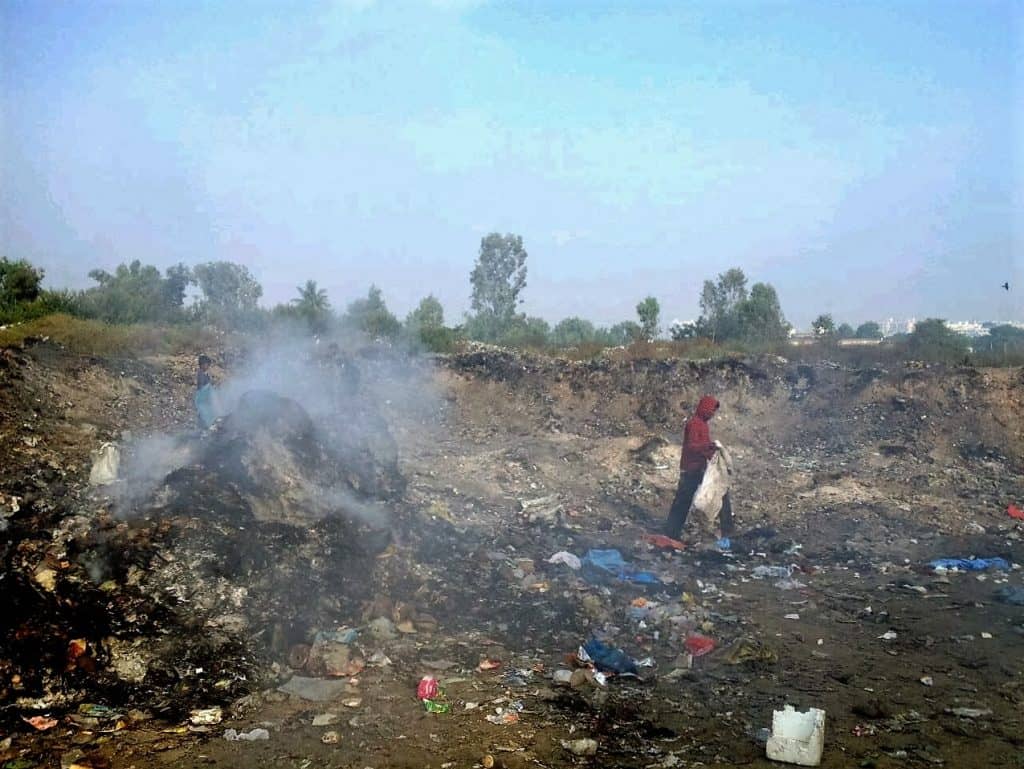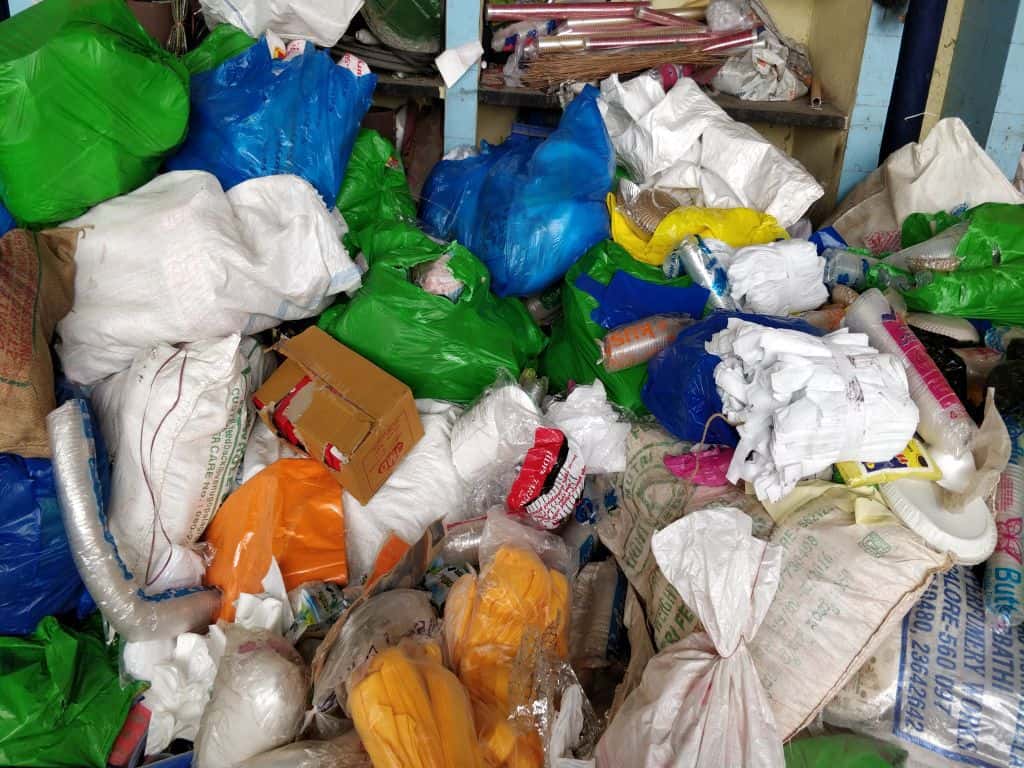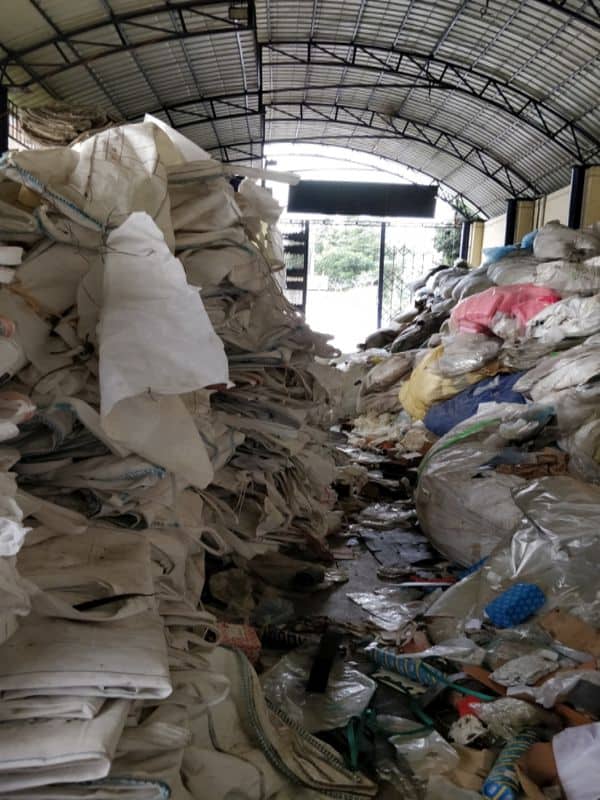The Centre’s Ministry of Environment, Forest & Climate Change recently notified the Plastic Waste Management (PWM) Amendment Rules, 2021, to phase out certain types of single-use plastics by 2022. The ban applies to the manufacture, sale, use, import and handling of some plastic items. The amendment is in line with Prime Minister Narendra Modi’s commitment of eliminating single-use plastic by 2022.
What is single-use plastic?
According to the PWM Rules, 2021, ‘single-use plastic commodity’ means a plastic item intended to be used once, before being disposed of or recycled.
The Expert Committee on ‘Single Use Plastics’, constituted by the Department of Chemicals and Petrochemicals (DCPC), GoI, devised an index for categorising such products. The committee’s report said the term refers to certain products made wholly or partly of plastics but not any polymer or resin.
The committee recommended a list of items to be phased out, after assessing products under the following two broad themes:
- Utility – includes hygiene, product safety, essentiality, social and economic impacts
- Environmental adverse impacts – includes collectability, recyclability, End of Life (EoL) solutions, impact of alternatives on the environment, littering propensity
Which items are banned?
The Rules have proposed a three-stage ban, on the following items:
By September 2021
- Carry bags made of virgin or recycled plastic, less than 75 microns thick
- Non-woven plastic carry bags less than 60 gram per square meter (GSM). (Non-woven plastic bags means bags that are not woven, and are instead made of plastic sheet, or web-structured fabric of plastic fibers or filaments bonded together.)
By July 2022
- Earbuds with plastic sticks, plastic sticks for balloons, plastic flags, candy sticks, ice-cream sticks, polystyrene (thermocol) for decoration
- Plates, cups, glasses, cutlery such as forks, spoons, knives, straw, trays, stirrers, wrapping films around sweet boxes, invitation cards and cigarette packets, plastic or PVC banners less than 100 micron
Exemption is given for items made of compostable plastics, that is, plastic that degrades by biological processes during composting. Unlike conventional petro-based plastics, compostable plastics don’t leave visible or toxic residue.
By December 2022
Plastic carry bags made of virgin or recycled plastic, less than 120 microns thick
Extended Producer Responsibility: Other plastic packaging that generates waste from consumers, which is not covered under the three-stage phase-out, is expected to be managed through extended producer responsibility. This applies to online retailers too.
Read more: Plastic waste: Why EPR alone doesn’t stand a chance
Karnataka’s 2016 plastic ban is more restrictive
Five years earlier, in March 2016, Karnataka government had issued a notification which almost completely banned plastic products, with certain exceptions. This notification was based on Section 5 of the Environment (Protection) Act (EPA), 1986.
As per the notification, “No person including shopkeeper, vendor, wholesaler, retailer, trader, hawker, or salesman etc, shall use plastic carry bags, plastic banners, plastic buntings, flex, plastic flags, plastic plates, plastic cups, plastic spoons, cling films and plastic sheets (for spreading on dining table) used in functions for serving food items, irrespective of thickness.” Also, these items should not be manufactured, transported or distributed.

The notification defined ‘plastics’ as items made out of polypropylene (PP), non-woven polypropylene, multi-layered co-extruded polypropylene, polyethene (PE), polyvinyl chloride (PVC), high- and low-density polyethene (HDPE and LDPE), polystyrene (thermocol), polyamides (Nylon), poly terephthalate (PT), polymethyl methacrylate (PMM), and plastic microbeads. This is a lot more restrictive than Centre’s Plastic Waste (Management and Handling) Rules, 2011 and even the 2021 amended Rules.
So, for example, Karnataka has banned bags made of polythene or polypropylene, but Centre allows these with restrictions. Karnataka has banned compostable plastic bags, but the Centre hasn’t.
Karnataka has also banned cling films. And as per BBMP’s Solid Waste Management bye-laws that came into effect in September 2019, strict action will be taken against retailers using these to wrap fresh produce. BBMP also doesn’t allow garbage bags, including biodegradable ones.
Also, while the Centre’s ban on plastic flags, plates, cups, spoons and straws will come into effect only in July 2022, these are already banned in Karnataka. As per a BBMP circular, food-delivery apps were to stop using plastic cutlery by March 31, 2019. Karnataka has also banned banners, buntings and flex.
Does the Karnataka government have powers to ban plastic?
Vidya Venugopal, Legal Services Team at The Anonymous Indian Charitable Trust ( TAICT), says EPA gives central government the following powers:
- Section 3 of EPA: Powers to ensure protection and improvement of the environment. This includes the power to coordinate actions between state governments, lay down standards and procedures, and constitute authorities for enforcement.
- Section 5: Power to issue directions for “closure, prohibition or regulation of any industry, operation or process”. This will be binding on the concerned person or authority.
- Centre can also delegate its powers and functions to state governments, through a notification. But state governments can’t be granted Centre’s statutory legislative power – that is, the power to make Rules under EPA – nor can they constitute an enforcing authority.
In 1988, the Centre passed a notification delegating its powers derived from Section 5 (the power to issue directions) to several state governments including Karnataka. This was subject to the condition that the Centre may revoke these powers if necessary in its opinion; but Centre has not done this so far.
So, as per Centre’s 1988 notification, Karnataka government has the power to issue directions for enforcing EPA, including the Center’s Plastic Rules. The 2016 State plastic ban is in the form of ‘Directions’ to enforce the Plastic Waste Rules 2011, even though it banned more items than the 2011 Rules.

Based on the State ban in 2016, BBMP also issued a notification on banned items, prescribing penalties for violations.
Is the state ban still relevant, in light of Centre’s 2021 rules?
The Karnataka plastic ban is still being challenged in court. In fact, soon after the State’s notification in 2016, plastic manufacturers and traders petitioned Karnataka High Court for a stay on the ban.
However, the Division Bench of then-Chief Justice Subhro Kamal Mukherjee and Justice Ravi Malimath dismissed their plea. The bench said the petitioners could approach the National Green Tribunal (NGT) or the appellate authority under the EPA.
The Karnataka State Plastic Association then filed a petition with the NGT, but the Tribunal too ruled in favour of the State, in 2017. The Association’s appeal to the NGT had pointed to the conflict between the State plastic ban and the Centre’s Plastic Rules 2011, especially with regards to the products banned. They said the plastic bags they manufactured were above 40 microns, which were permitted under Centre’s Rules. So, the State plastic ban went beyond the powers of the state government under Section 5 of EPA; the delegated authority (State) couldn’t go beyond the powers of the original authority (Centre) which frames statutory rules, the petitioners said.
State government responded that, based on ground reality, scientific reports, expert analysis, and according to the BBMP (Bruhat Bengaluru Mahanagara Palike), it was impossible to determine the thickness of plastic; and hence very difficult to effectively regulate the use of plastic carry bags as per the 2011 Plastic Rules. State cited this as the reason for introducing a blanket ban.

Meghana Shetty, Legal Services Team, TAICT, explains why NGT upheld the State ban: “The Center’s Plastic Rules relate to plastic waste management specifically. But Section 5 directions of the EPA are more encompassing – it could relate to protection of the environment in other fields as well, not just plastic management. While analysing the difference between the central government’s statutory legislative power and the State’s direction-issuing executive power, the latter should not be contrary to the EPA provisions. Further, the State’s direction is limited to the territorial jurisdiction of the State”.
The Principal Bench of NGT in an earlier case (Jarnail Singh & anr v Industrial Plastic Packers, Original Application No. 53/2013) had noted that the primary aim of delegating authority to the State under EPA, was to protect the environment. This was the basis for the Karnataka plastic ban too, and proper procedure was followed, with proper application of mind, NGT said. It was legal for the State to take a stand to ban most plastics, based on its inability to control and regulate their large-scale use. And this could be a ground for invoking State’s power under Section 5 of EPA, in the larger public interest, NGT ruled.
Read more: Indian cities need a waste inventory. These studies show why and how
An appeal on this case was then filed in the Supreme Court in 2017. SC had earlier held (in Mohd. Faruk v State of Madhya Pradesh, 1969) that, when considering the validity of a notification issued by the state government, it is for the State to prove that the restrictions are reasonable. As per the NGT judgement, State has shown the restrictions to be reasonable.
However, eventually, Supreme Court’s decision will determine the validity of the State ban. Until then, the State plastic ban is valid, along with the new PWM Rules 2021.
Quick questions
Can the Karnataka state government ban any other single-use packaging plastic in the near future?
As per the 2021 PWM Rules, any further notification prohibiting the manufacture, import, stocking, distribution, sale and use of plastic sheets, bags or covers can come into effect only 10 years after the publishing of the 2021 Rules. It’s silent on the State notifications passed earlier. So, it appears the State plastic ban remains valid, but any new or amended notification from the State can come into effect only after 10 years.
While the Central Pollution Control Board (CPCB) allows the use of compostable plastic bags, the Karnataka State Pollution Control Board (KSPCB) wrote to the CPCB requesting that Karnataka be exempted from the use of these bags. Was this within KSPCB’s powers?
As per an Indian Express report, in May 2019, KSPCB wrote to the CPCB, urging them to not certify ‘compostable plastic’ bags manufactured in Karnataka, since these had been banned by the State. KSPCB further requested that the certification should include a condition that these bags should not be sold in Karnataka.
KSPCB’s request was based on advice from BBMP and the city’s waste management experts, after a series of raids on restaurants and vendors. The raids had indicated that there was no foolproof method to distinguish compostable plastic, and fake products might be used. Additionally, the State plastic ban does not exempt any products and was introduced to reduce the solid waste generated in the city, KSPCB said.
So, the KSPCB letter is based on the State plastic ban which is still legally valid. Moreover, in 2011, Centre had delegated Section 5 powers to the State Pollution Control Boards, to issue directions to any industry or authority for violating Rules relating to plastic or other waste.
Additionally, the Plastic Rules 2021 have given the KSPCB the authority to enforce the Rules. Based on the delegation of EPA’s Section 5 power and KSPCB’s authority under the 2021 Rules, it is likely within the KSPCB’s authority to regulate the sale and certification of plastic products in the State and to request an exemption from the CPCB.